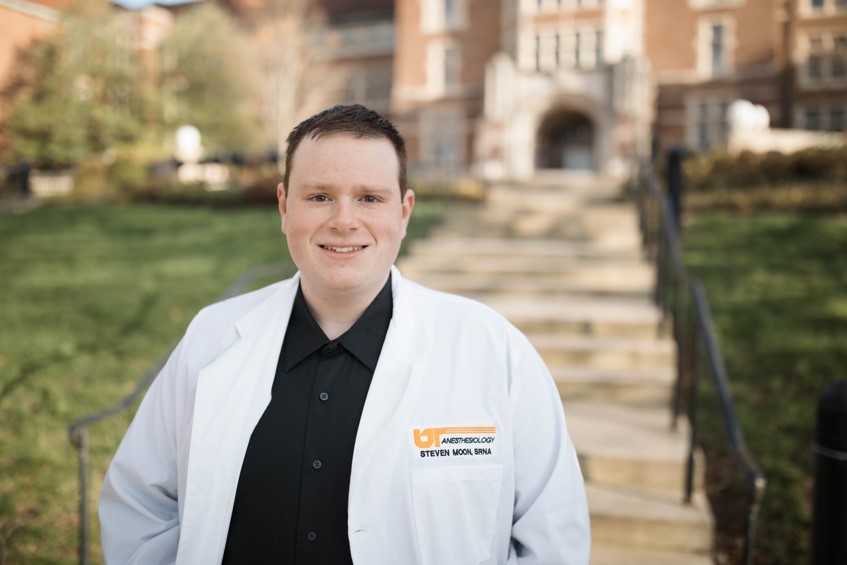Steven Moon is in the DNP nurse anesthesia program at the College of Nursing. He received his BSN from the University of Michigan in Flint and worked in the Medical-Surgical Intensive care unit at Hurley Medical Center in downtown Flint, MI for over two years before returning to CRNA school. He has been the vice-president of Sigma Theta Tau-Pi Delta Chapter for two terms and has been a student member on two UT faculty committees. Moon will graduate in August of 2023.
Read more about Moon and his time at UT below:

Why do you want to be CRNA? I wanted to be a CRNA to take my skills as a critical care nurse to the highest level while still being able to provide advanced individualized care to a patient during surgery, which can be the scariest days of their life. Being able to care for a patient from the beginning to the end of their surgery and have them wake up and thank you for keeping them safe and comfortable is very rewarding.
What inspires you? Learning new skills, leadership, accepting challenges to learn new things, giving back to others, service, leadership, professional advocacy, and enhancing the education of others.

Tell me about your research/area of interest: My groups DNP project was focused around creating an education module to provide education to current anesthesia providers about the prevention, recognition, and treatment of local anesthetics systemic toxicity and looking at internal data to determine if patients may have been receiving higher than recommended doses of local anesthetics putting them at risk for toxicity.
Why has your time as a Volunteer been memorable? I have been able to embrace what it means to be a Vol Nurse by continuing to have new opportunities to develop and improve my leadership skills and I have also been able to meet many new friends.

What are your career goals? I plan to become board certified as a CRNA in August and will begin working later this fall. I would like to become more involved with quality improvement and clinical informatics one day and hope to find a way to further incorporate informatics with anesthesia. Additionally, I hope to be able to return to UT to teach in the anesthesia program.
The most influential element of my UT nursing education has been … learning how to become a CRNA and all the opportunities I have had to travel to state and national conferences to network with other CRNA/SRNA leaders and advocate for my new profession.
—
CONTACT:
Kara Clark Cardwell (865-974-9498, [email protected])

